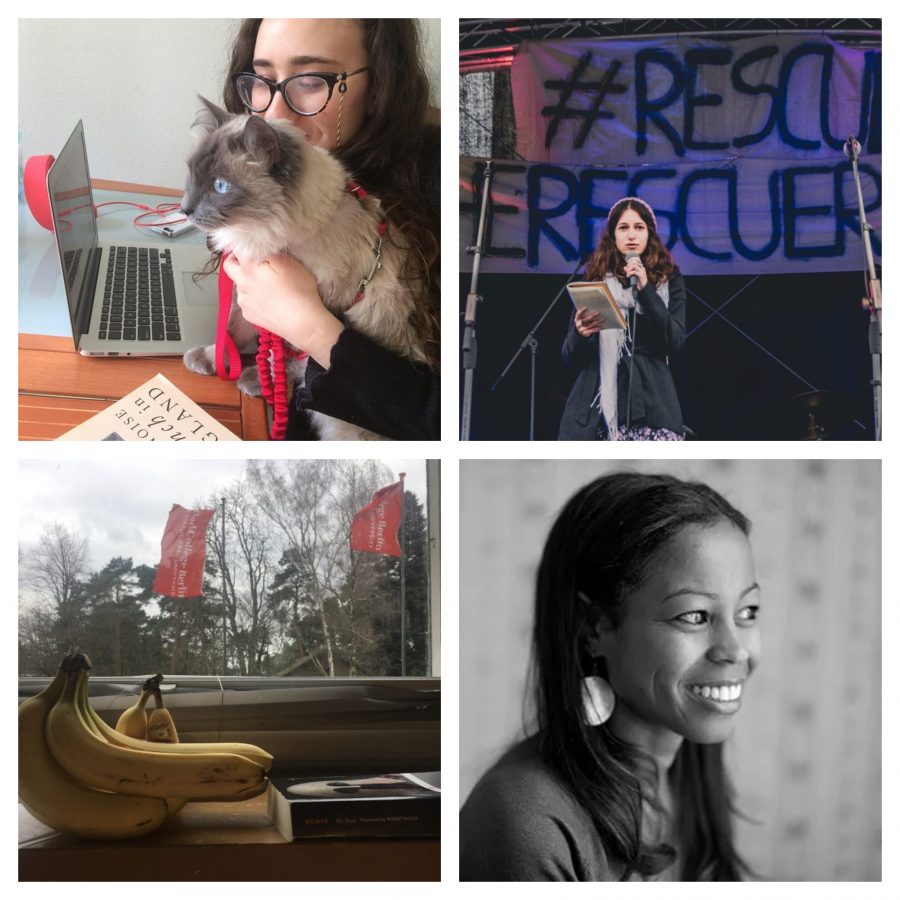Die Bärliner revisits some of our favorite pieces on the topic of writing; students explore different writing processes, approaches, and why they write. From political and advocacy journalism to faculty interviews, reflections from BCB student writing tutors to creative writing in times of Covid-19 uncertainty, we invite you to look back on what our authors and interviewees have shared about their relationship and experiments with writing.
May 2018- With A Little Help From the Writing Center by Elena Gagovska
Elena Gagovska (HAST ´19) writes a profile on the BCB Writing Center with interviews of the writing tutors.
“Nina Lewis (HAST ´18) has helped a lot of seniors with their thesis projects while she was working on one herself. She found it engaging to work with people whose writing processes are so different from hers, but who, like her, were going really in-depth with one topic. In light of her positive experience so far, Nina would like to have a similar job when she goes to grad school.
For Bisera Djundeva (HAST ´17, now, Library and Academic Resources Officer), writing is not just a job, but a personal interest. She can’t pinpoint which part of being a writing tutor is her favorite, but rather enjoys the process itself, which involves helping the writer with their work and learning about how to help students from her fellow writing tutors. For example, we’d ask ourselves: To what extent should one direct the writer? You don’t want to direct them too much, but, on the other hand you do want to direct them.”
August 2019- Writing as Solidarity by Elena Gagovska
Elena Gagovska reflects on her experience as a writer and editor for Die Bärliner.
“Articles that record and analyze political acts allow those acts to be visible in the public sphere and can change people’s minds and actions. Especially when fighting from the margins, it is imperative to be seen. And especially when having a platform — no matter its size — it is imperative for writers to bring those issues out from the margins and offer public support. That is what writing means to me.
Writing has been one of the key tools for social progress. Writing that has documented political movements or explored societal norms and trends — whether in prose, poetry, or media — has been essential in changing society for the better. Writing can make people understand the lives of people whose immediate experiences they do not share — for example, through feminist texts, men can come closer to understanding the struggles of the women in their lives. Writing can be a vehicle through which we can not only imagine a better world, but figure out how we can work together to get there.”
March 2020- New Silences- Writing for Coronavirus by Vala Schriefer
In a night of chaos and uncertainty Vala Schriefer (HAST ´23) stays awake to reflect on the strange state of the world in the time of the coronavirus.
“I stopped reading and started writing; that’s all I can really do for a while I think, the only productive thing I can do. Awake that night, I thought of all the iterations of this same story playing out across campus and across the globe. It’s not just me-here-now, it’s everyone. What I wrote isn’t good, it’s not particularly artful, but it’s true and that’s something I can hold onto for a while and look back to as a window into some unbelievable moment, one whose bitterness I’m far too tired to feel right now. I close my computer, sleep for 2 hours, awake, and write again in new silence.”
November 2020- On Belonging, Writing, and Migrating with Dr. Fatin Abbas by Aditi Parashar
Aditi Parashar (HAST ´22) interviews Dr. Fatin Abbas about her life as a American-Sudanese writer and professor.
“As you can see from my academic life, literature has always been important to me, but over time, creative writing as a subject of study also became crucial for me. As a child, I used to write a lot and I think that had to do with my moments of dislocation. My interest in writing grew out of my own story of migration.
It was in these moments of dislocation when I found writing to be my anchor. Writing became a form of making sense of my new surroundings and experiences. I would write fairy tales and childish stories, but that became my way of seeing the world and creating control.”

